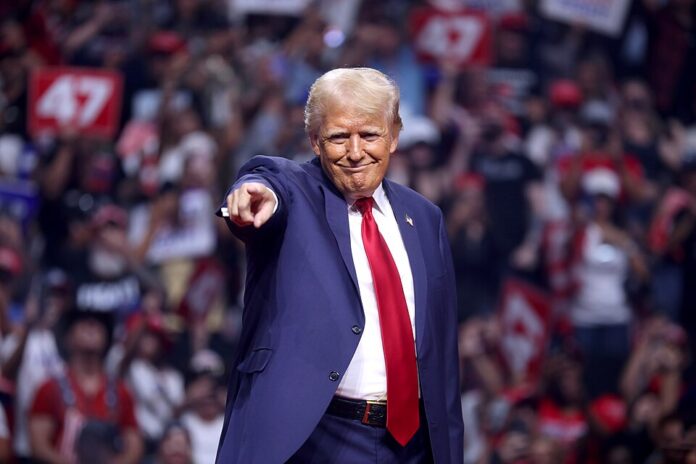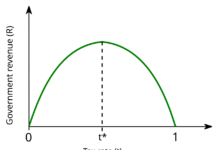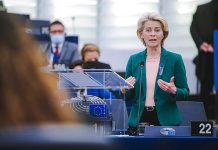
In a reprieve for China, US President Donald Trump has signalled that the high tariffs on Chinese goods he announced will not amount to 145% after all. He stated: “145% is very high and it won’t be that high,” adding “It won’t be anywhere near that high. It’ll come down substantially. But it won’t be zero.”
When being questioned whether the U.S. was going to play hardball with China or Xi in order to make a deal, or if officials would mention the Covid-19 pandemic, Trump quickly responded: “No”, saying:
“No, no, we’re going to be very nice. They’re going to be very nice, and we’ll see what happens. (…) But ultimately, they have to make a deal, because otherwise they’re not going to be able to deal in the United States, and we want them involved. (…) I think we’re going to live together very happily and ideally work together, so I think it’s going to work out very well.”
The announcement signifies yet another moderation by Trump, after he already declared a 90-day pause, also following a sharp rise in 30- and 10-year US interest rates.
On the same day, U.S. Treasury Secretary Scott Bessent remarked at a private investment conference hosted by JP Morgan that the high tariff rates between the United States and China have effectively embargoed trade between the economies. He thereby added that that the Trump administration’s goal was not to decouple the American and Chinese economies.
In response, China expressed willingness to resume trade talks with the U.S., stating: “We don’t want a trade war, but we’re not afraid of one,” according to Foreign Ministry spokesperson Guo Jiakun: “If we talk, the door is open.” It remains to be seen whether China will end up also lifting its countermeasures.
"On Wednesday, the hashtag “Trump chickened out” was trending as a top topic on social media platform Weibo, racking up more than 150 million views."https://t.co/W0bbT72ri0
— Pieter Cleppe (@pietercleppe) April 23, 2025
Europe’s response
Meanwhile, EU-US negotiations are proceeding uneasily. The EU is still figuring out how to respond. As part of the retaliation for the American tariffs on steel and aluminium, which are separate from the newly announced ‘Liberation Day’ tariffs at the beginning of April, the European Commission wanted to impose tariffs of up to 25 percent on a wide range of export products from the US. The EU’s countertariffs were supposed to take effect on 16 May, but this has since been postponed to avoid giving the impression that the EU is responding to the new tariffs.
For now, the European Union’s ‘zero-for-zero’ tariff proposal has been rejected by Trump, who wants the EU to instead commit to buying 350 billion dollars worth of American energy, while demanding that it scraps a range of non-tariff barriers.
Europe is ready to negotiate with the US.
We have offered zero-for-zero tariffs for industrial goods.
Because we're always ready for a good deal.
But we’re also prepared to respond with countermeasures.
And protect ourselves against indirect effects through trade diversion. pic.twitter.com/hpZ77TXH4B
— Ursula von der Leyen (@vonderleyen) April 7, 2025
US Trade Agency USTR thereby explicitly lists the EU’s new anti-deforestation directive EUDR as one of the “unfair trade practices faced by American exporters.” It notes: “The EU’s Deforestation-free Supply Chain Regulation (EUDR) aims to prohibit imports of seven products—including cattle, cocoa, rubber, and wood—unless exporters meet various burdensome compliance requirements, including due diligence and geolocation data. It is estimated the EUDR will potentially impact $8.6 billion worth of annual U.S. agricultural and industrial exports.”
At the end of last year, the EU decided to postpone the new bureaucratic rules, after they had been upsetting a number of its key trading partners. Malaysia was the first country to complain about EUDR, as it would hit its own palm oil industry hard. The country finds it unfair that it is confronted with the new, heavy bureaucracy, despite the fact that it has succeeded in significantly reducing deforestation in the palm oil sector, according to NGOs. This is partly thanks to its strict national monitoring standard, the MSPO. A new version of this standard will be even stricter than that of the EU, but the EU nevertheless refuses to label it equivalent.
Last week, the Commission did announce a series of “simplification” measures to lighten the burden of EUDR. One of the changes is that importers can also reuse existing due diligence statements if the goods are reimported into the EU. This is welcome, but the question remains why the EU does not simply offer a number of its recent green regulations to the United States as sacrificial lambs to be offered in exchange for tariff relief, especially as many of these measures have not even legally entered into force yet.
Another new EU law which effectively acts as a non-tariff barrier and which has caused a lot of complaints at home and abroad is the EU’s new CSDDD directive, which forces companies to provide details on the extent to which their business partners respect all kinds of environmental and social standards. At the end of last year, Republication Congressman Andy Barr already complained about such regulations, dubbing it the EU’s “regulation factory”. He thereby vowed: “An America first agenda will animate ferocious opposition to a European Union that attempts to impose their costly, burdensome regulations on American firms.”
European socialist politicians are not exactly keen to scrap these kinds of policies, but surely not continuing with controversial regulations as a price to resolve the trade war is not such a bad deal. The European Commission is at least open to discuss scrapping non-tariff barriers.
The cost of doing business in Europe is far too high. Europe needs radical simplification and the Polish presidency @Poland25eu delivers:
✅ 200k companies out of EU carbon tax (CBAM)
✅ “stop the clock” for CSRD/CSDDD corporate reporting
And we’re just getting started 😉… pic.twitter.com/FyqqKiFeLK
— Paweł Karbownik (@Pawel_Karbo) April 2, 2025
Conclusion
Whether cooler heads will prevail between the Trump administration on the one hand, and its key trading partners Europe and China on the other still remains to be seen. At least it is welcome that U.S. President Trump has no qualms whatsoever to abandon his previous stances on tariffs just like that.
Politico takes it one step further and notes that “it turns out that Donald Trump might be the best thing to happen to free trade — for Europe, at least.” Not only France’s more friendly stance towards the EU-Mercosur deal is testimony of that. It quotes European Commission President Ursula von der Leyen stating that many countries aere now reaching out to Brussels as a reliable partner that would not “change their minds overnight.” Von der Leyen thereby added: “In a more and more unpredictable global environment, countries are lining up to work with us.”
If Donald Trump is transforming the European Commission back into a force to open up trade, perhaps he really is that “4D – chess” – playing genius after all.












